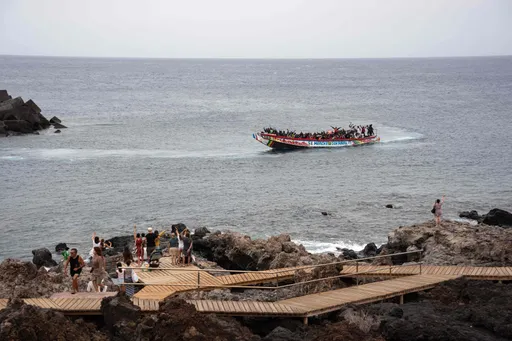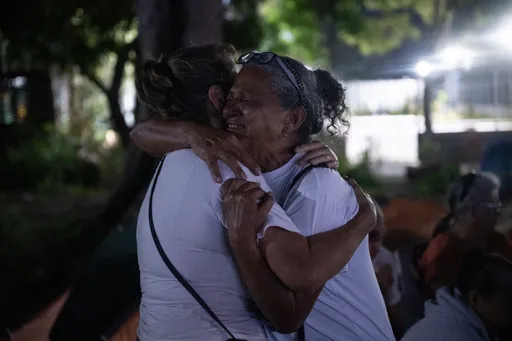Britain's interior minister has faced criticism for describing migrants crossing the English Channel in small boats as an "invasion," days after an immigration centre was attacked with firebombs.
Prime Minister Rishi Sunak, who appointed Suella Braverman after he took office last week, told his Cabinet on Tuesday that Britain "would always be a compassionate, welcoming country," his spokesperson said.
Home Secretary Braverman used the term while defending conditions at a processing centre for new arrivals where some 4,000 people have been held in a facility intended for 1,600.
Braverman referred to small-boat crossings on Monday as “the invasion of our southern coast” and said: “illegal immigration is out of control.”
Her deputy, Immigration Minister Robert Jenrick, distanced himself from her words.
“In a job like mine you have to choose your words very carefully,” he told Sky News. “And I would never demonize people coming to this country in pursuit of a better life.”
The number of asylum-seekers attempting to reach Britain by boat has increased steadily, and the system for considering applications has slowed to a crawl amid turmoil in the Conservative government, which is on its third prime minister and third home secretary this year.
READ MORE:India-origin minister complains 'low-skilled' migrants coming to UK
Braverman accused of deliberately targeting asylum seekers
Manston — a former airfield in southeast England — is supposed to be a temporary processing centre where new arrivals spend 24 hours before moving on to longer-term accommodation, but refugee groups say some people have been stuck there for weeks.
Some families are sleeping in tents, and there have been cases of diphtheria and scabies.
Chief Inspector of Prisons Charlie Taylor said that when he visited the site recently, he saw people sleeping on floors and “lots and lots of people in a room, all squished in together.”
“For a few hours, that would be acceptable, but where people are spending long periods of time there, it just isn’t,” he told Sky News.
Critics accuse Braverman of deliberately worsening conditions at Manston by refusing to book hotel rooms for asylum seekers.
The government said, “large numbers” of people were being moved out of Manston on Tuesday to relieve pressure. It said a facility some 20 miles (32 kilometres) away in the port town of Dover that was firebombed Sunday had reopened.
Police said counterterrorism officers were leading the investigation into the firebombing, which slightly injured two staff members. The suspect, a 66-year-old man from a town about 100 miles (160 kilometres) away, threw “a number of crude incendiary devices," then drove away and killed himself.
Detective Chief Superintendent Olly Wright of Counter Terrorism Policing South East said the attack was “likely to be driven by some form of hate-filled grievance.”
Just over 48,000 people applied for asylum in the UK in 2021, fewer than in Germany, France or Spain. But there has been a sharp increase in the number of people trying to cross the channel in dinghies and other small craft as alternative routes, such as stowing away on trucks, have become more difficult.
Some 40,000 people have made the hazardous journey across one of the world’s busiest shipping lanes so far this year, up from 28,000 in all of 2021 and 8,500 in 2020.
READ MORE: UK's interior minister resigns after breaching government rules























